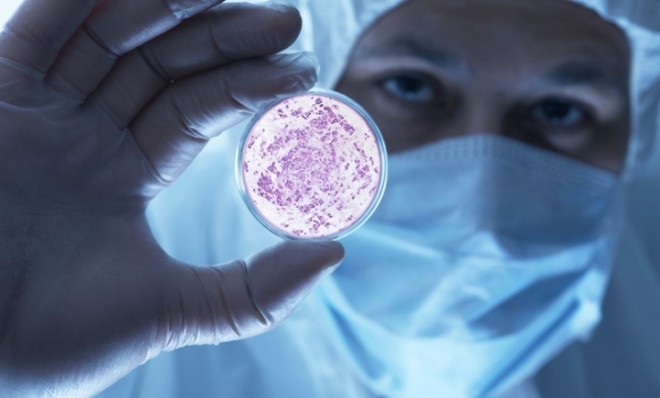The 'nightmare' superbug resistant to our strongest antibiotics
A cousin of E. coli has somehow gained the ability to fend off our most powerful drugs, and now the CDC is stepping in

A free daily email with the biggest news stories of the day – and the best features from TheWeek.com
You are now subscribed
Your newsletter sign-up was successful
A stubborn bacteria is spreading in U.S. hospitals, which could prove deadly for patients with already-weakened immune systems. And now the Centers for Disease Control and Prevention are stepping in, calling for medical professionals across the country to buckle down with stringent preventative measures.
The lethal bacteria is called carbapenem-resistant enterobacteriaceae — CRE for short. Unlike other bacterium in the enterobacteriaceae family (which includes E. coli), CRE has somehow become resistant to a powerful line of antibiotics called carbapenems, which are some of the strongest drugs we have, and are often used as a last line of defense.
Because CRE is resistant to carbapenems, infected patients — many of whom already have weakened immune systems from other health woes — are left to be treated with colistin, an older and less potent antibiotic that can be toxic to the kidneys. And CRE boasts unusually high mortality rates, killing about half of the people who get the deadly infection in their bloodstream.
The Week
Escape your echo chamber. Get the facts behind the news, plus analysis from multiple perspectives.

Sign up for The Week's Free Newsletters
From our morning news briefing to a weekly Good News Newsletter, get the best of The Week delivered directly to your inbox.
From our morning news briefing to a weekly Good News Newsletter, get the best of The Week delivered directly to your inbox.
"CRE are a nightmare bacteria," said CDC Director Tom Friedman. "Our strongest antibiotics don't work, and patients are left with potentially untreatable infections."
One in 25 acute-care facilities reported at least one case of CRE last year, according to the CDC. While they're still not very common, "CRE's ability to spread themselves and their resistance raises the concern that potentially untreatable infections could appear in otherwise healthy people."
How did the bug get so powerful in the first place? Over-prescription, apparently: Experts say that half of all antibiotic prescriptions are unnecessary. Now the CDC is calling on doctors, nurses, and medical professionals to take precautionary measures, including frequent hand-washing, and the removal of intravenous lines and catheters as early as possible to "reduce the risk of infection," says ABC News.
"The goal of the campaign is to get this thing under control right now," says Dr. Richard Beset, ABC News' chief health and medical editor, "before CRE has a chance to spread to more hospitals and out into the community."
A free daily email with the biggest news stories of the day – and the best features from TheWeek.com
-
 5 cinematic cartoons about Bezos betting big on 'Melania'
5 cinematic cartoons about Bezos betting big on 'Melania'Cartoons Artists take on a girlboss, a fetching newspaper, and more
-
 The fall of the generals: China’s military purge
The fall of the generals: China’s military purgeIn the Spotlight Xi Jinping’s extraordinary removal of senior general proves that no-one is safe from anti-corruption drive that has investigated millions
-
 Why the Gorton and Denton by-election is a ‘Frankenstein’s monster’
Why the Gorton and Denton by-election is a ‘Frankenstein’s monster’Talking Point Reform and the Greens have the Labour seat in their sights, but the constituency’s complex demographics make messaging tricky